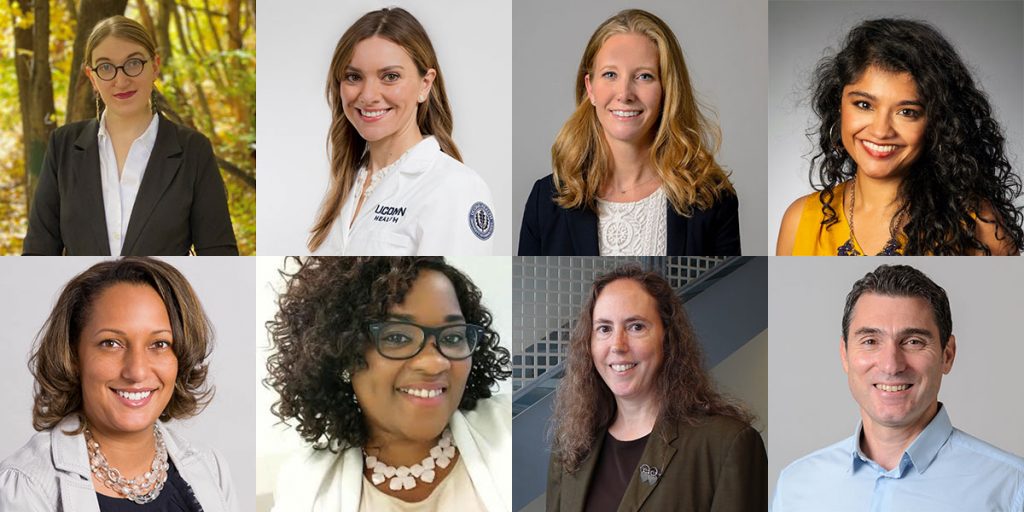Story originally published on UConn Today

Several UConn faculty, staff, and students are being honored for their work benefitting citizens and communities as recipients of the annual Provost’s Awards for Excellence in Community Engaged Scholarship.
The awards recognize scholarly activities led by members of the UConn community that are in collaboration with local, regional/state, national, or global communities to create conditions for the public good, culminating in sustainable change and dissemination of these activities. These activities integrate community service with research, creative work, and teaching.
The awardees for 2022 are as follows:
Staff, Emerging: Marina Creed
Marina A. Creed is a Family Nurse Practitioner at the Multiple Sclerosis Center within the Department of Neurology at UConn Health. Creed was nominated for her cross-campus UConn Indoor Air Quality Initiative efforts to protect her patients and surrounding communities during the COVID-19 pandemic, including spearheading an interventional public health initiative spanning UConn Health and UConn’s Schools of Medicine, Nursing, and Engineering. The initiative’s goal is to improve indoor air quality in the community and reduce the transmission of COVID-19. Creed became the integral force behind getting 400 “Corsi-Rosenthal Boxes” into public school districts and vulnerable community locations. These low-cost, do-it-yourself air purifiers have been used in other places around the country but are just emerging to reduce indoor air contaminants, including SARS-CoV-2 viral particles, in situations in which more expensive changes to ventilation are either impossible or will take years to implement. Hundreds of these air purifiers have also been built and donated to Coventry, Hartford, and West Hartford Public Schools, as well as to local homeless shelters, medical clinics, and public libraries. Her efforts have helped many schools become safer and she is working with team behind the initiative to quantify the intervention’s impact on air quality in the pilot school districts, and build a public-facing website to teach communities how to build the unit through a STEM lesson plan for K-12 schools.